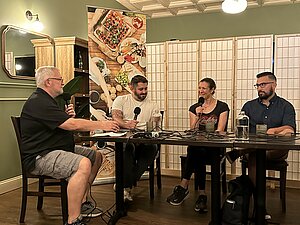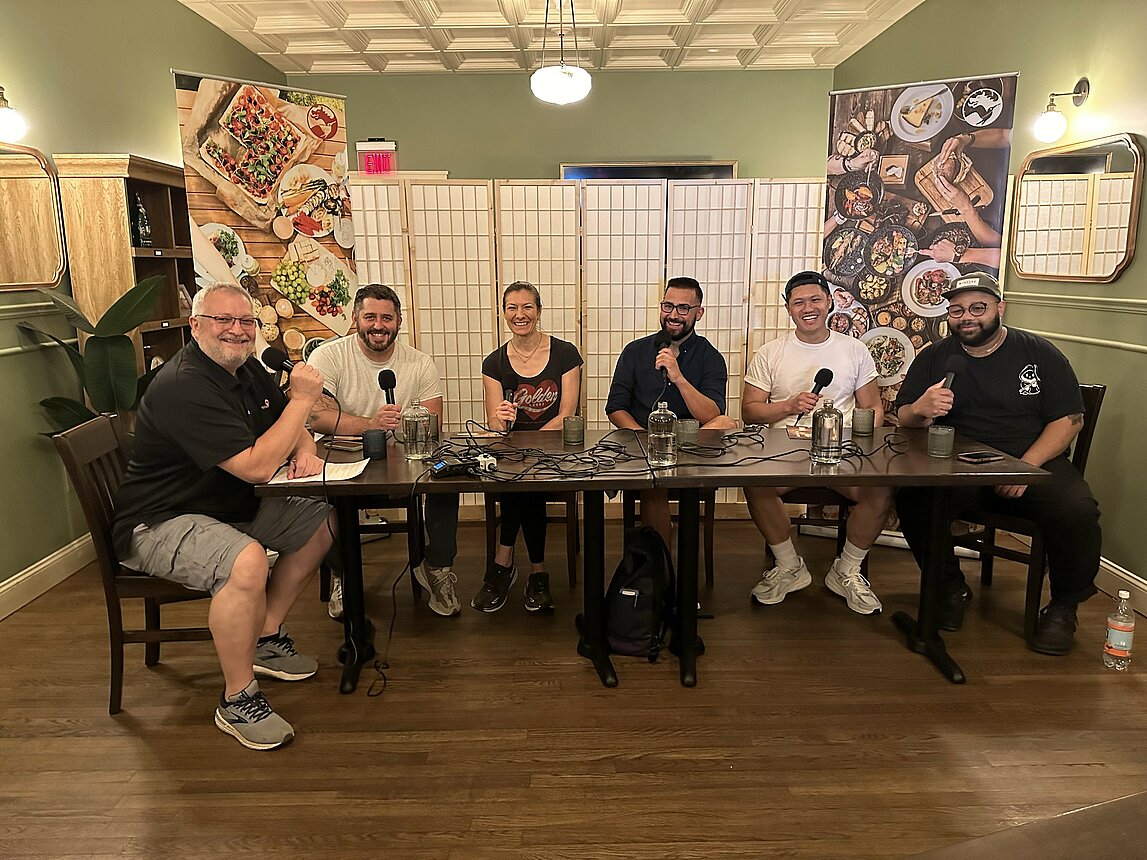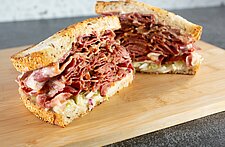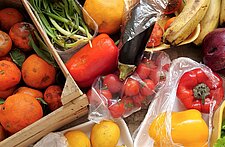At StarChefs Boston, there’s excitement about the changing food scene. Emmanuel Laroche, host of Flavors Unknown, was there to hear from mixologists, pastry chefs, and other passionate chefs about how they got started, what drives their inspiration, and where they see the food scene headed.
In his latest Flavors Unknown podcast episode, Emmanuel spoke with a handful of rising stars on a StarChefs panel discussion. He sat down with Chef-partner Will Gilson of Cambridge Treat Hospitality Group, Puritan & Company, and Puritan Oyster Bar; Chef-owner Monica Glass of Verveine Cafe & Bakery; Beverage Director James Sutter of Blossom Bar, Birds of Paradise, and the Bolton Bar; Chef-owner Laurence Louie of Roboto; and Chef-owner Matt Bullock of Southern Pines Supper Club and Diner Car.
Boston’s Food Scene
Whether they grew up in Boston or moved to the city, the five panelists agreed that the region has a more traditional vibe. As Chef Monica described it, “I find it to be food that I want to eat. It's more familiar ingredients or using interesting ingredients.”
Simultaneously, Boston is seeing some innovation, with people willing to take some risks. Beverage director James said, “That's something unique for pushing as many boundaries as they are. You can walk in off the street, with no reservation, and you'll have a blast and be extraordinarily comfortable with very diverse and interesting food.”
Chef Matt added, “Now, we're finally starting to see other cuisines and other flavors break through. People are going out of their comfort zone. They're doing global comfort food, introducing people to grains and flavors that you just don't see that often. I think that's starting to be more prevalent in the food scene.”
 Taking the Culinary Plunge
Taking the Culinary Plunge
The conversation soon shifted to how they got started. Chef Monica’s experience started with her grandparents' backyard garden in Maryland. After studying film and video and working in New York City, she felt her childhood calling. She said, “I love to work with my hands, and I love to make people happy, and that, to me, was food. I took advantage of the culinary mecca that New York City is and worked for free after my regular job so I could learn how to cook better.”
Later, she turned to pastry, desserts, and other bakery goods. As Chef Monica described the shift toward bakers: “It was more creative, and I liked to know the reason why things work the way they do. So, it was more scientific as well.”
Chef Will also felt the pull of gardening, with his educator parents shifting to farm life. He explained, “I grew up learning how to take seeds or seedlings and put them into dirt and grow them into something, and that was always the most exciting part of it for me.”
This passion for hard work became his work ethic when opening new restaurants. Will said, “I think there's this immediacy with the feedback you get from creating something in a restaurant that just feels so good. It can also be humbling when someone tries it and goes, 'That's not good,' and then you go, 'Okay, take the personal aspect out.' Once you get past that, you become much better from the feedback, and I think that helps.”
At a young age, Chef Matt found himself obsessed with food show competitions, although he went to school for computers. A lack of fulfillment led him to culinary work, where he saw how challenging it was. Matt said, “I got a job in a kitchen, and I was like, yes, this is what I want to do. It was really hard, but I just stuck with it and came through the other side.”
To Chef Laurence, his Chinese-American heritage brought out the importance of food from an early age. He noted, “Food was always the way we expressed love. Food was how we communicated everything; so, it always felt normal. It was never like, 'Oh, I love food,' but I love eating.” After college and an early career working in community activism, he was drawn back to food. As Laurence said, “Food just became a natural thing. I was like, ‘I think I can be good at this. I enjoy it. Love the kitchen. Love that speed. Love that intensity.’”
Related: StarChefs Los Angeles 2024 Panel Discussion
Finding Inspiration for Menu Concepts
At Birds of Paradise, beverage director James uses travel for inspiration and infuses menu discussions with global food culture. James explained, “There's always a reason things become popular in a certain area, why certain ingredients are used. They're economic, they're cultural, and they're social, and those things thankfully are fairly well documented.” With this background, he and his team create cocktails that blend flavors and ingredients they’ve experienced when traveling. James summed it up: “Two cultures that may not otherwise interact geographically can do so through a beverage.”
Travel is also a core element for Chef Will. Along with a travel-based childhood, Will continued to seek travel experiences and use those insights to build his restaurant menu concepts. Another important part of getting authentic flavors and ingredients is getting out among the average citizen. Will noted, “There's a humbling part of that when you get out of the high street of wherever you go, and you see where the real people are.”
During their discussions, the StarChefs group also dished on how they adapt their menus. Chef Monica uses gluten-free ingredients without marketing them as such to avoid any stigma. This way, she said, “I could provide people with good food that anybody can enjoy. My goal in anything that I do is to try to bring everybody together and not let anyone feel excluded by the food.”
Chef Will wanted to create a menu concept that spoke to where people are. In some cases, it was in a more at-home way as people continued to work remotely after the pandemic. Customer priorities also shifted, with more favoring affordable, easy-to-transport dishes that were still full of robust flavors and comfortably innovative ingredients. He said, “This latest concept, we wrote the entire thing on how do we make good affordable food that you can have delivered to your home, or you can walk in and you can grab it, and it's not going to break the bank. I think that was something we had to learn over the past four years.”
Using Social Media and AI Technology in Restaurants
As the discussion turned toward technology, the StarChefs panelists had a range of views. Chefs Will and Monica considered themselves more old souls, with a critical eye on AI and whether it could work for their businesses. Will acknowledged finding opportunities for it but noted, “I don't know if AI will figure out that this recipe can't have sesame seeds in it because of an allergy some guests have. If that's taking somebody's life in your hands, what do you do?”
Beverage director James focused more on social media and the travel destinations shaping his menu. He said, “Increasingly, it has become a means of education about what inspires us for our ideas and our background. Everything from the small food stands that we went to, to the restaurants, to the beaches, and us interacting with the flavors there, knowing that these will be the inspirations for our future drinks on the menu.”
 Takeaway
Takeaway
Boston may have a deep colonial history and a strong sense of tradition, but it’s no stranger to innovation at its own pace. From the eclectic vibe to the unique yet familiar dishes, Boston is a long-time food scene that's now seeing creativity with global influences. The five panelists, along with other chefs across the city, are helping give dishes new life and new flavors and showing why Boston is a food culture worth exploring.
For more StarChefs and food innovation insights, contact the Symrise team.






